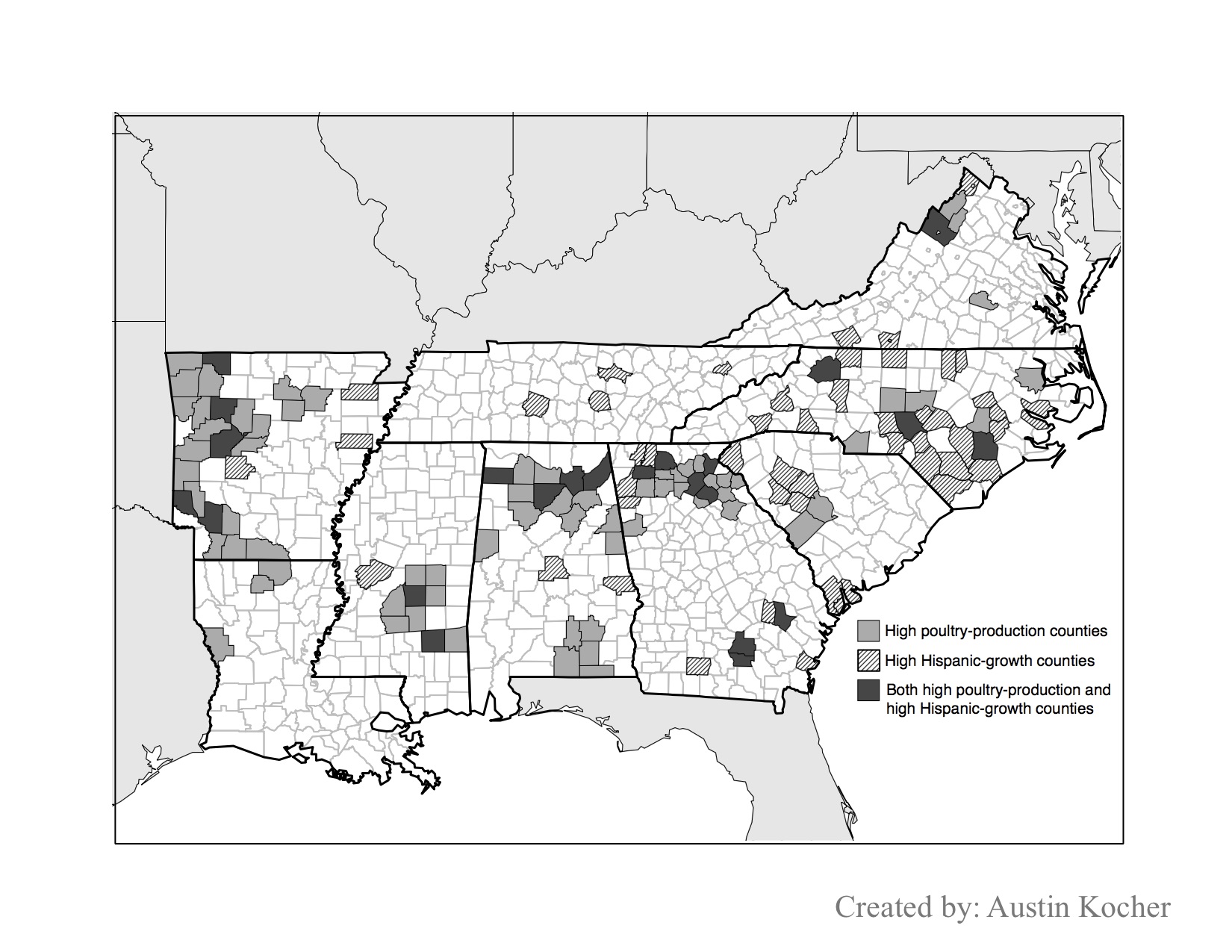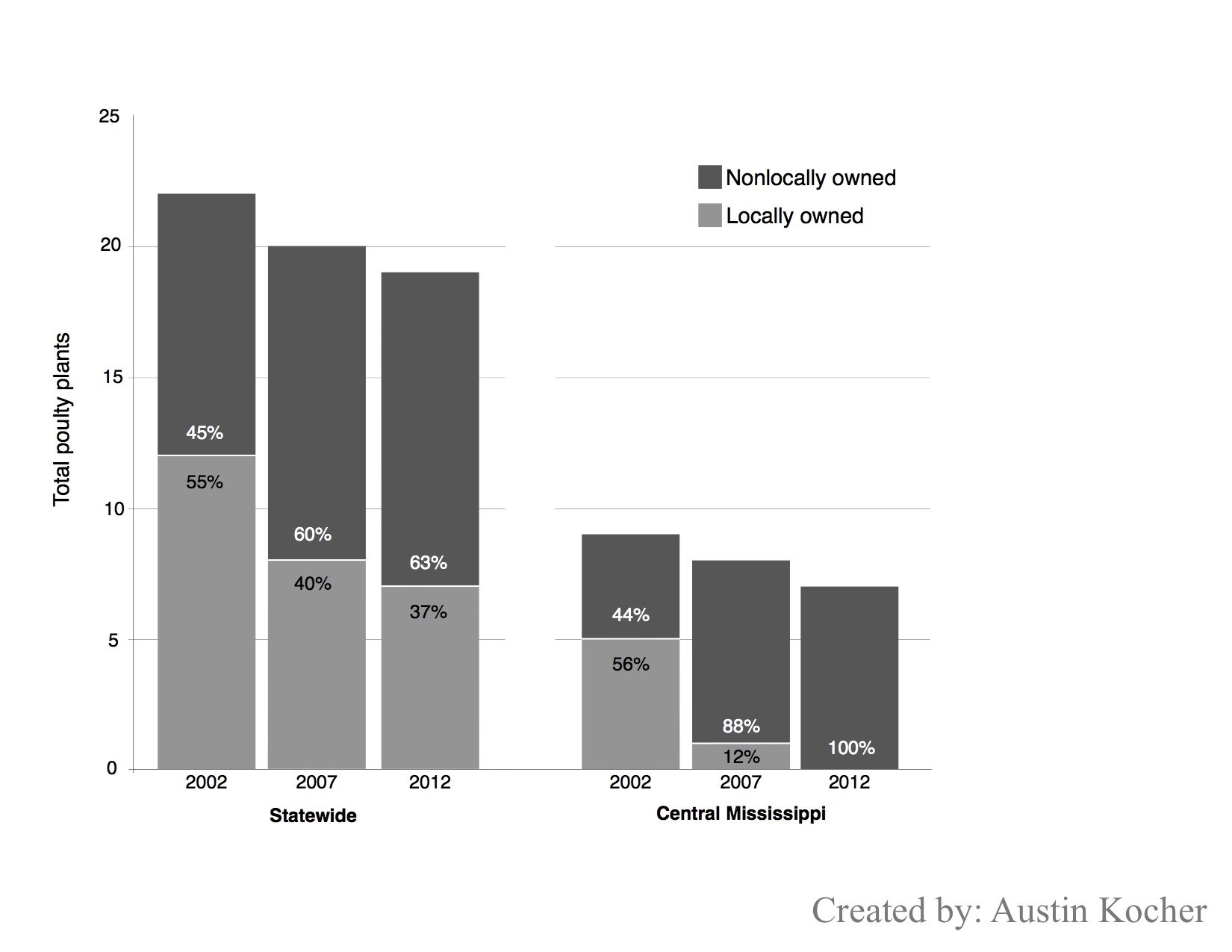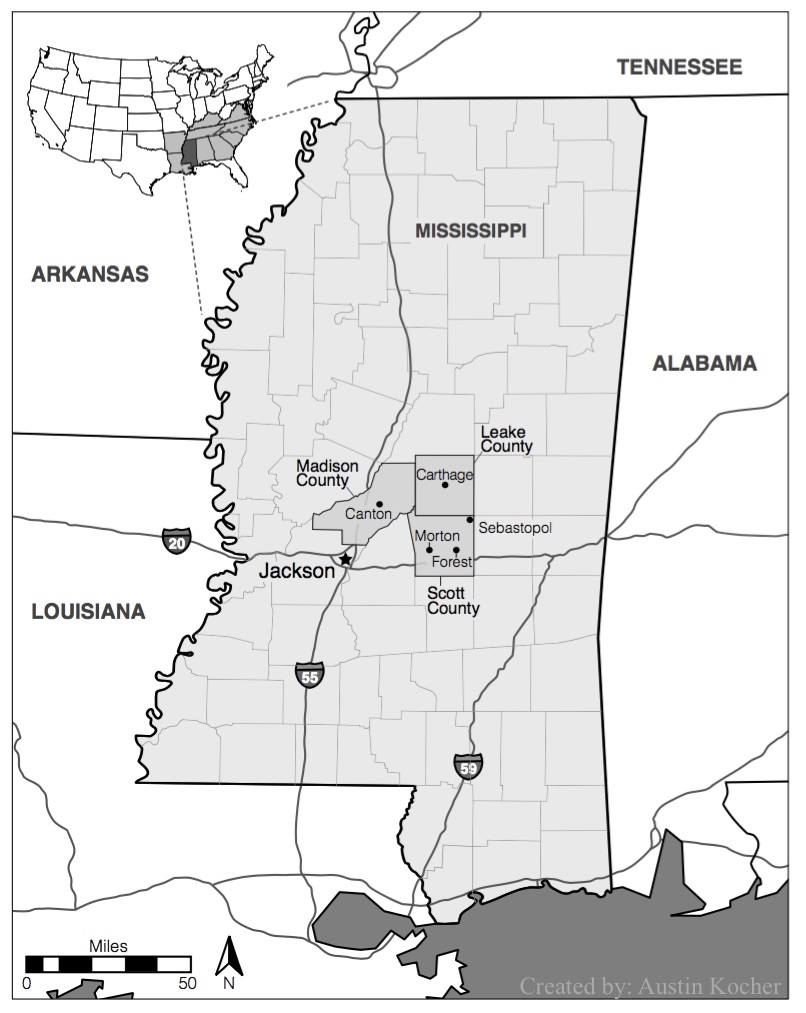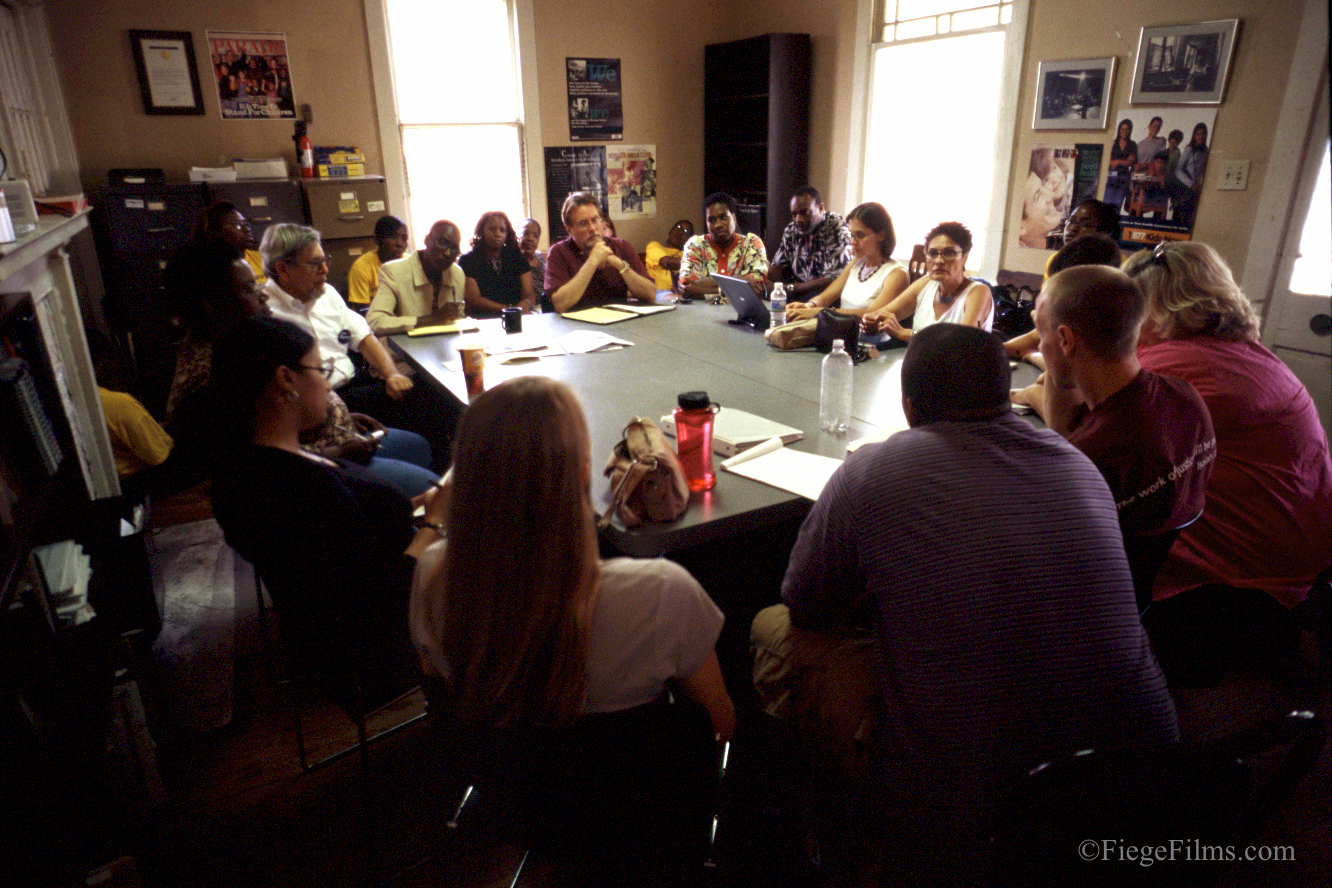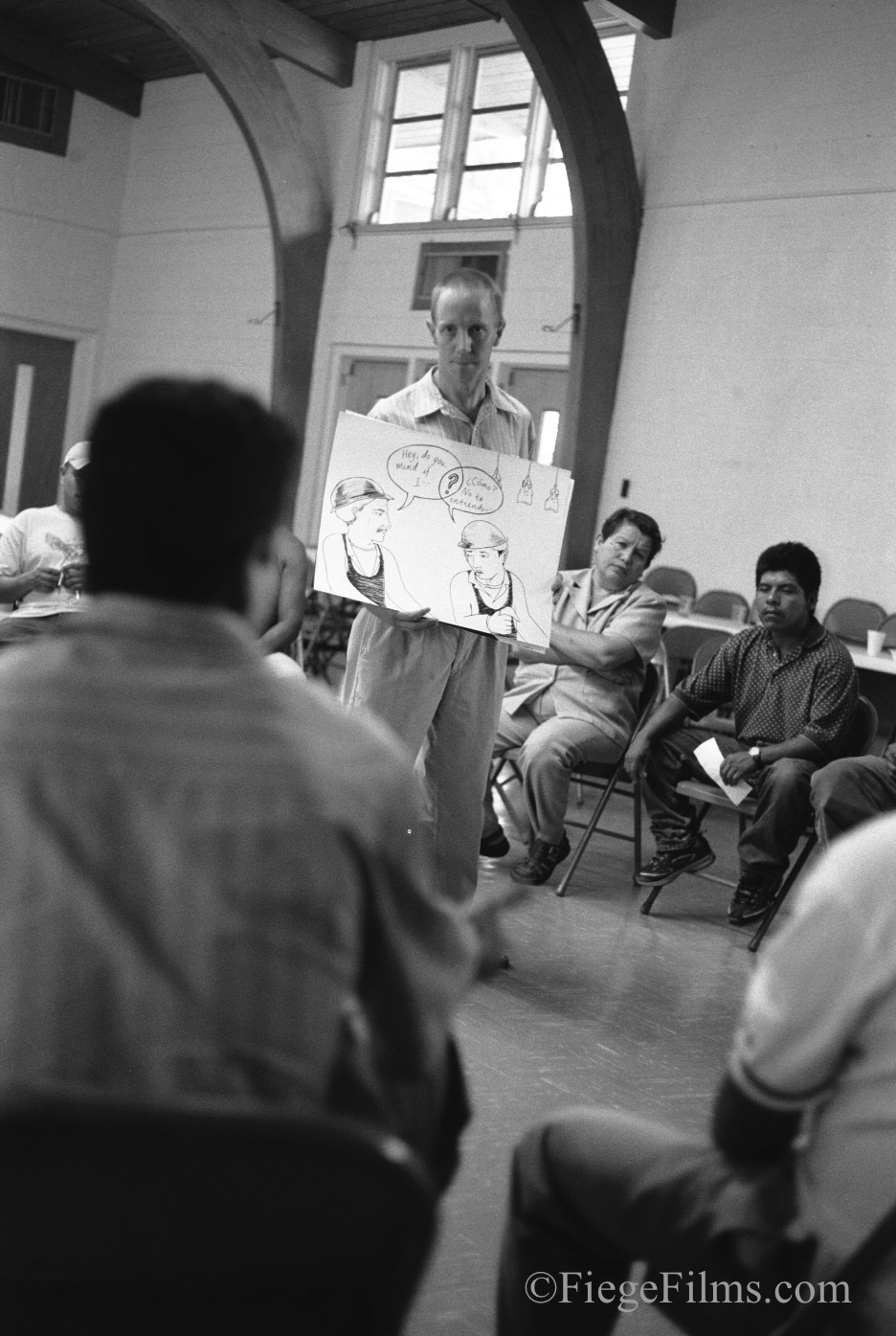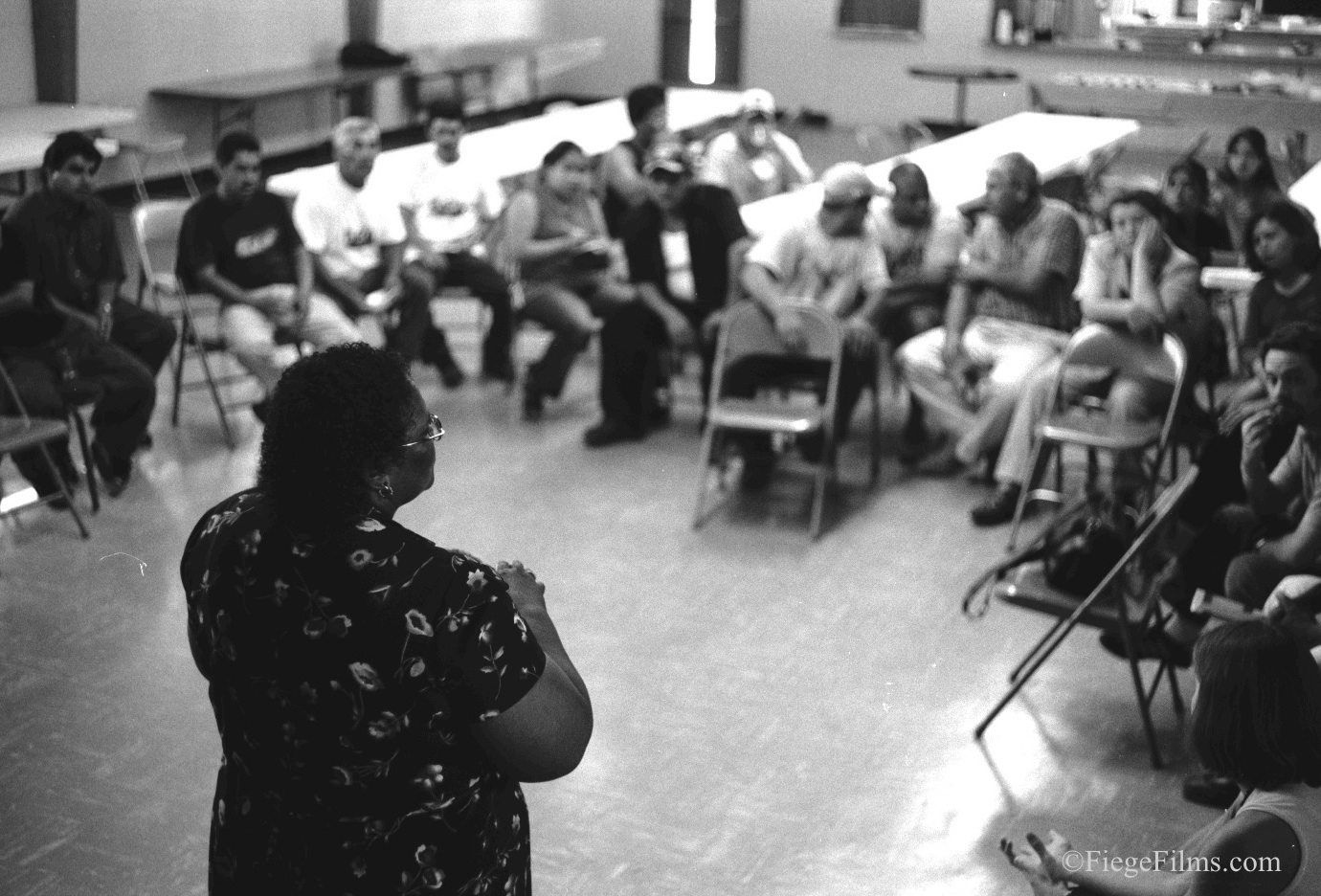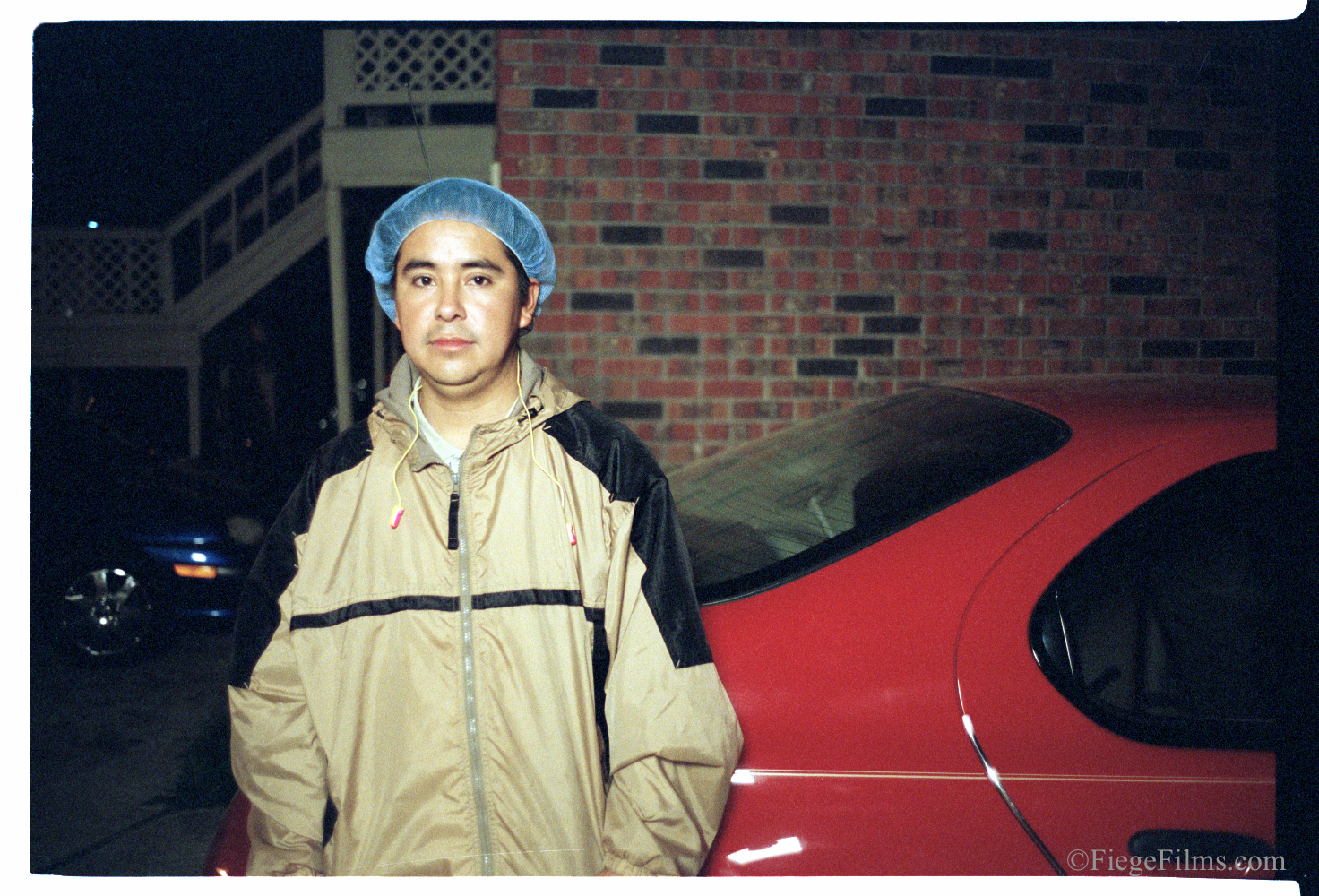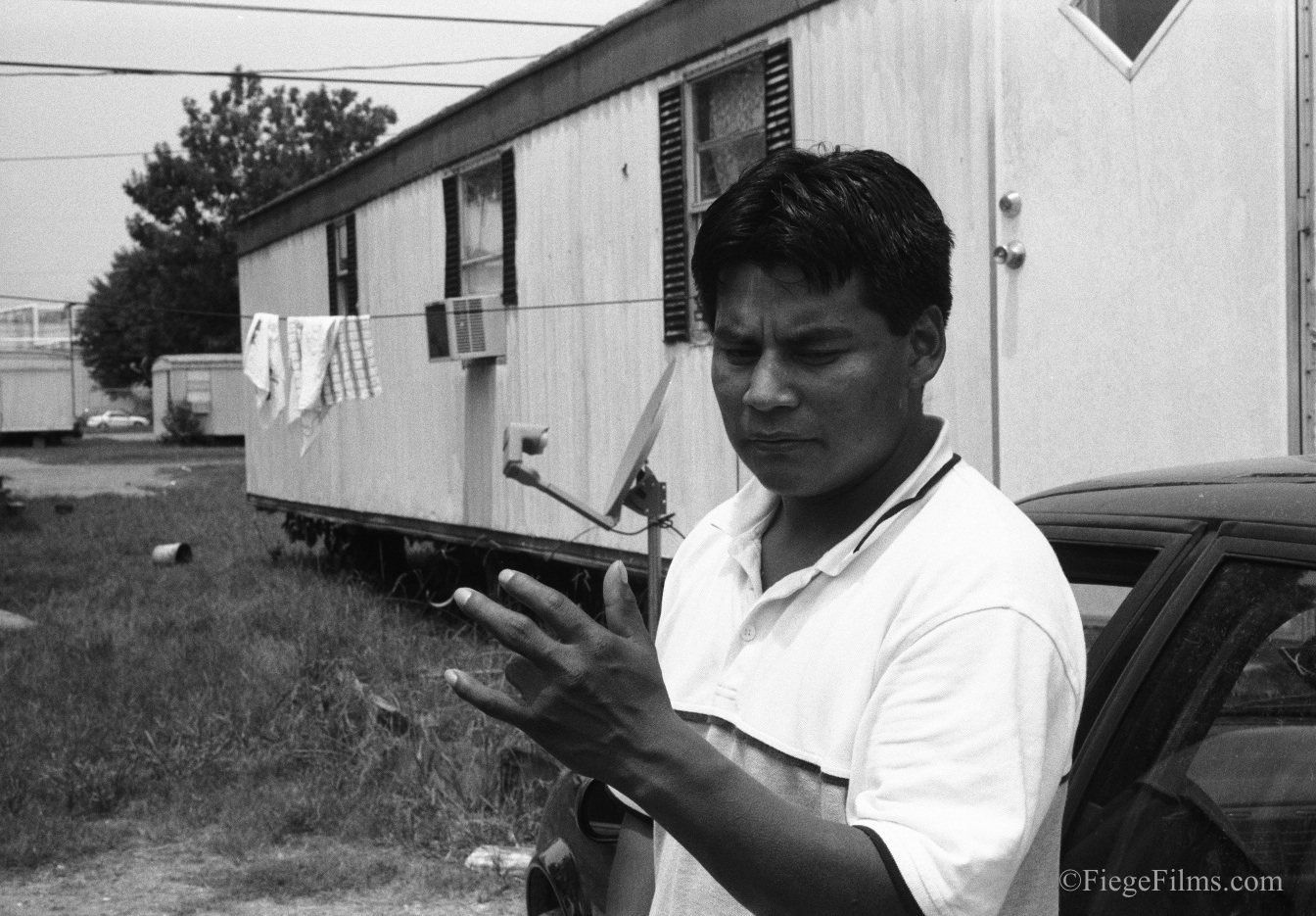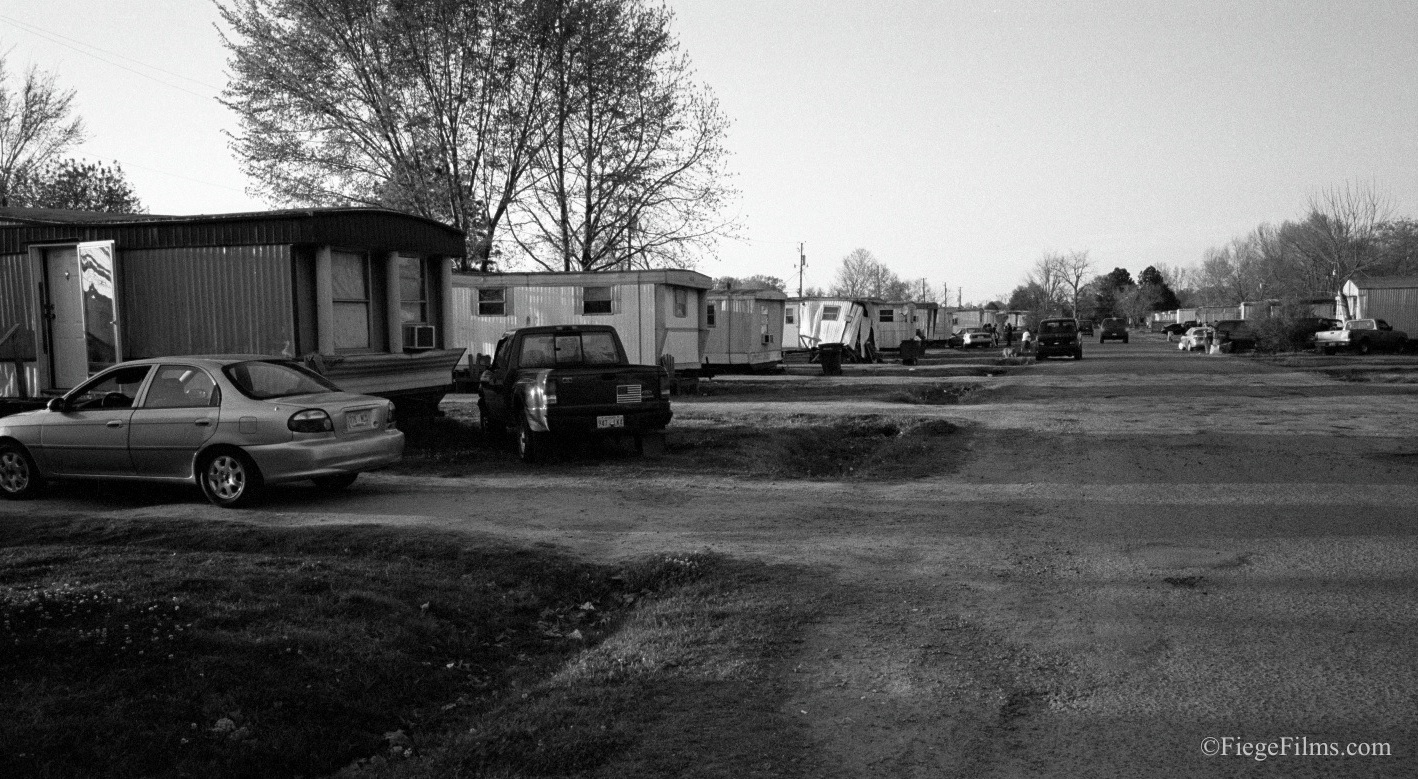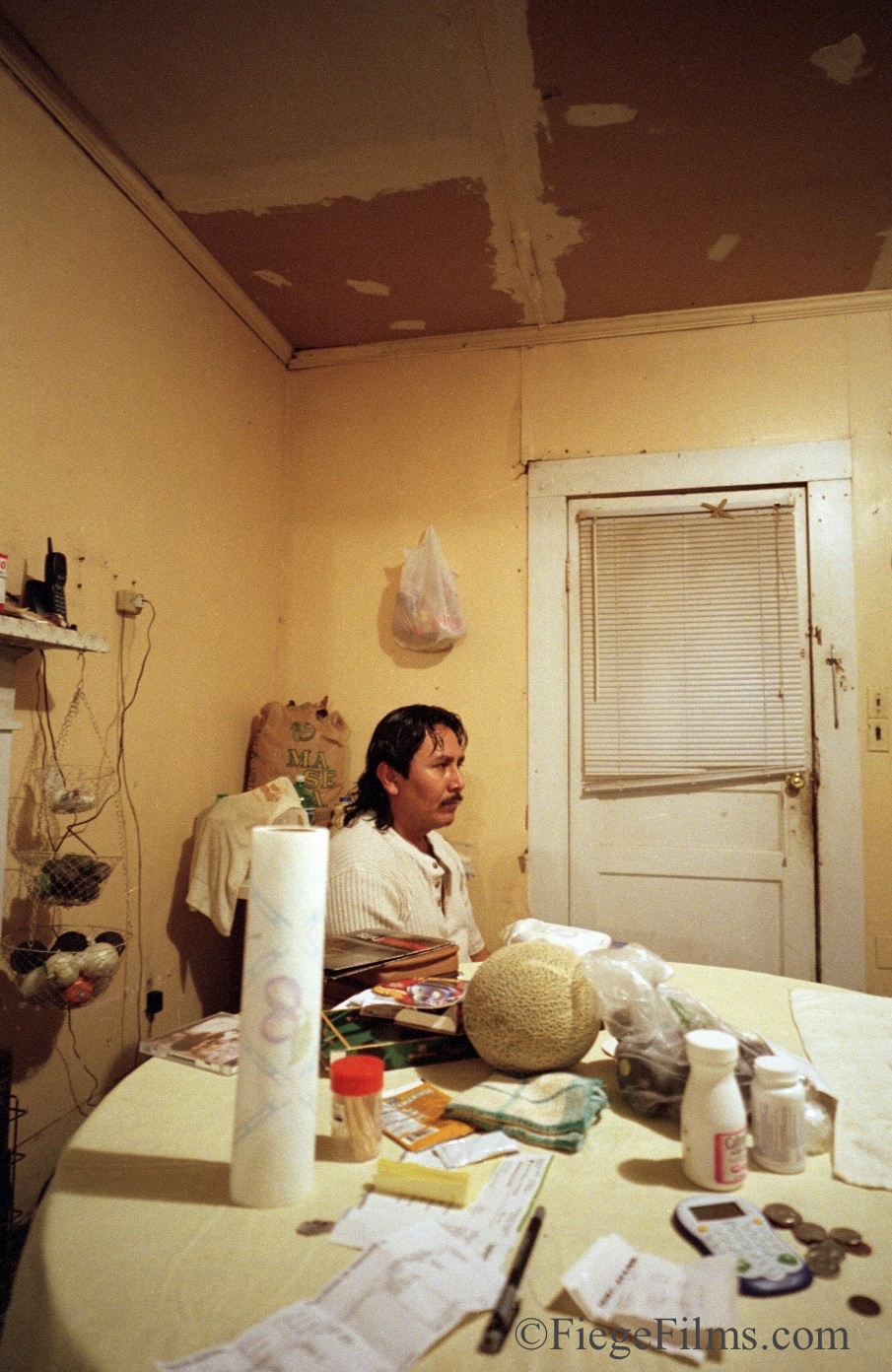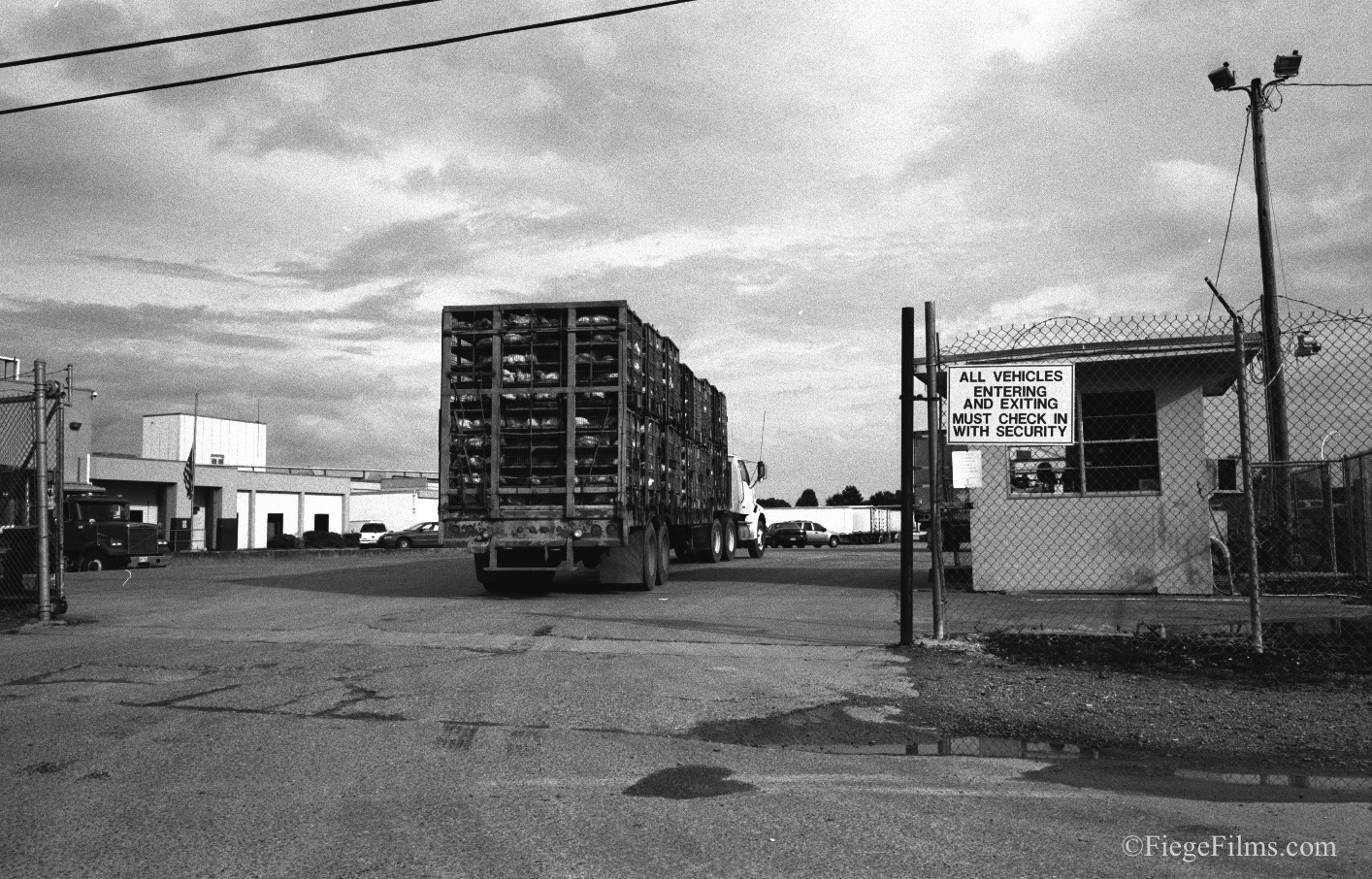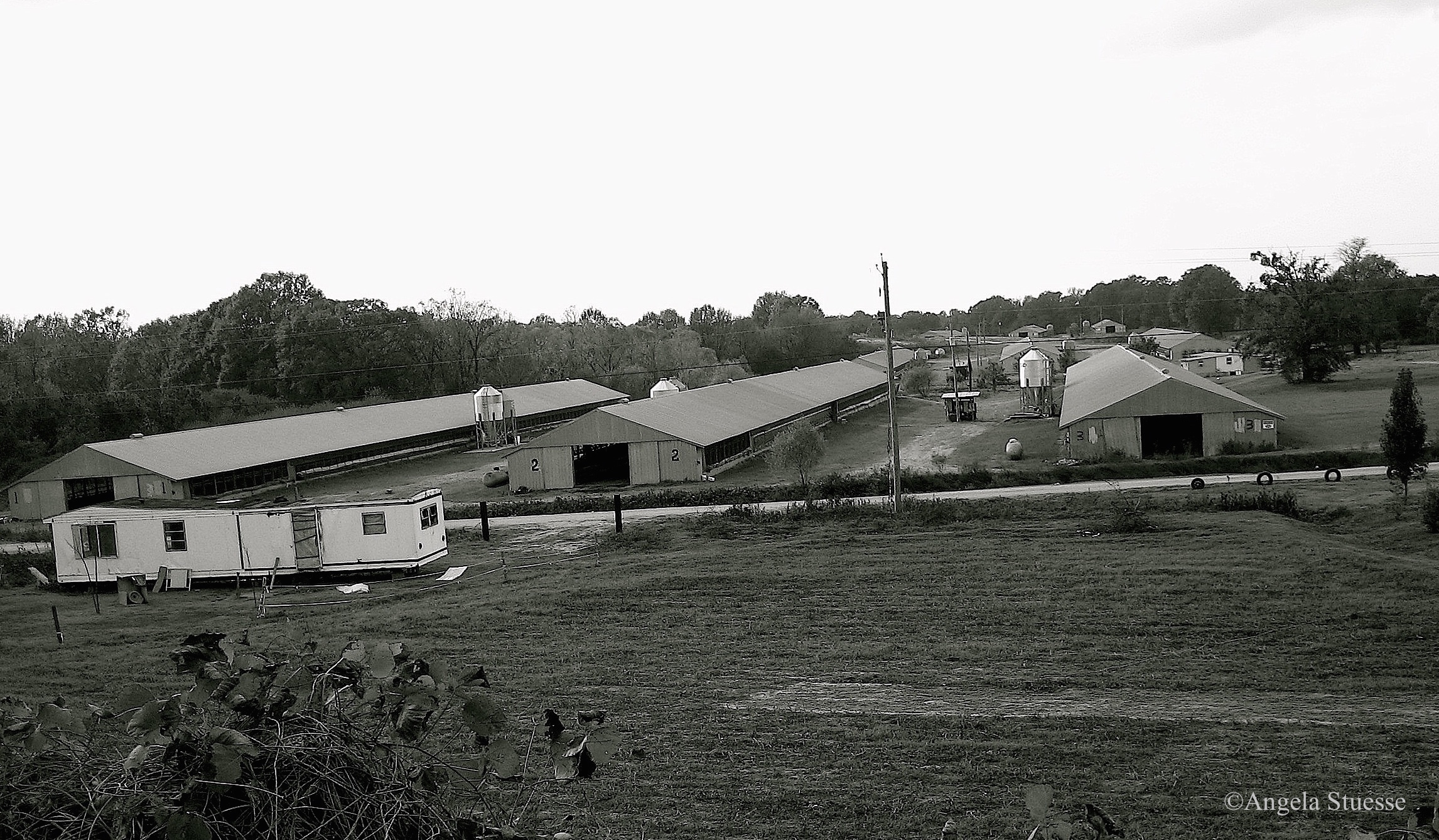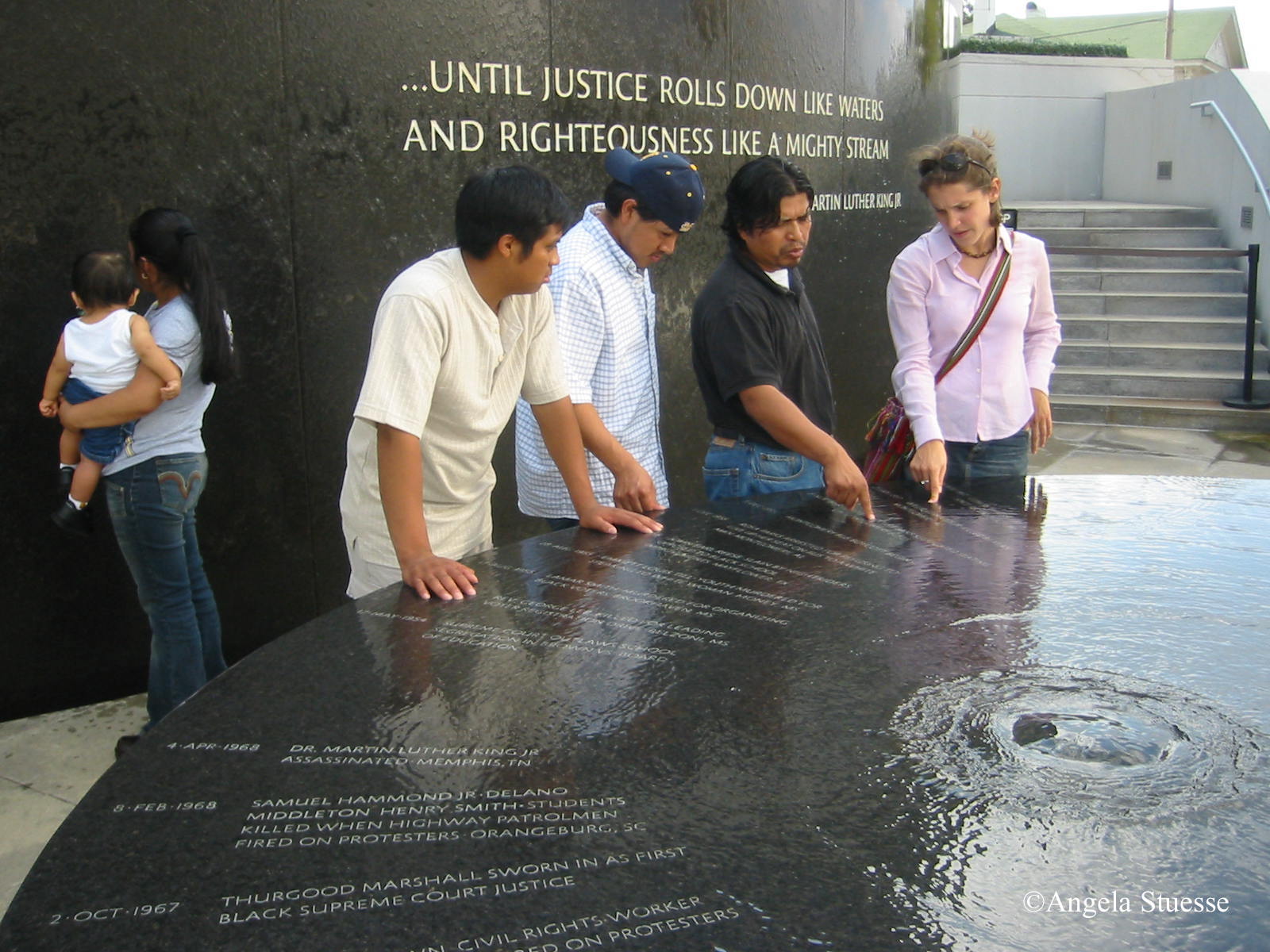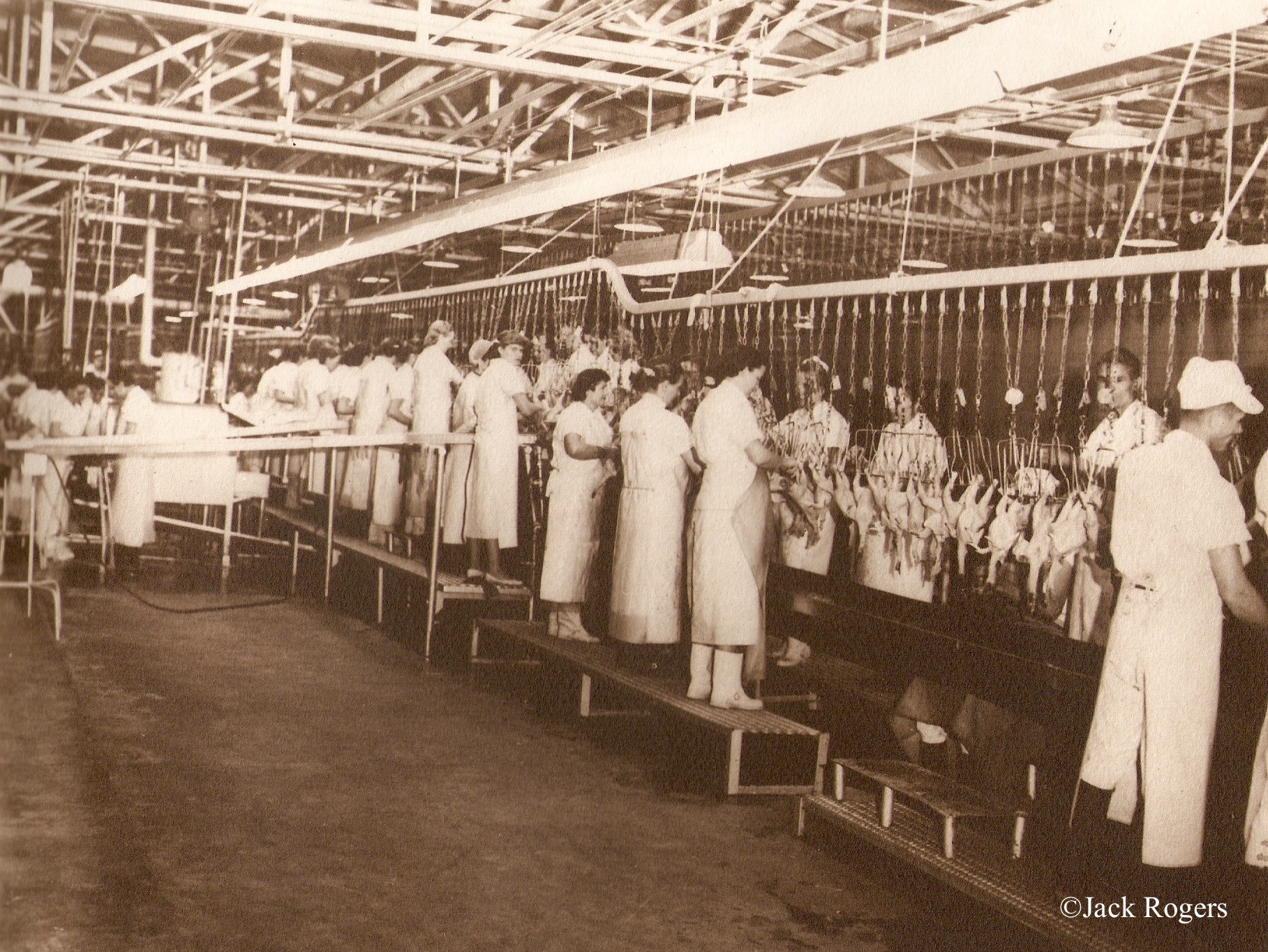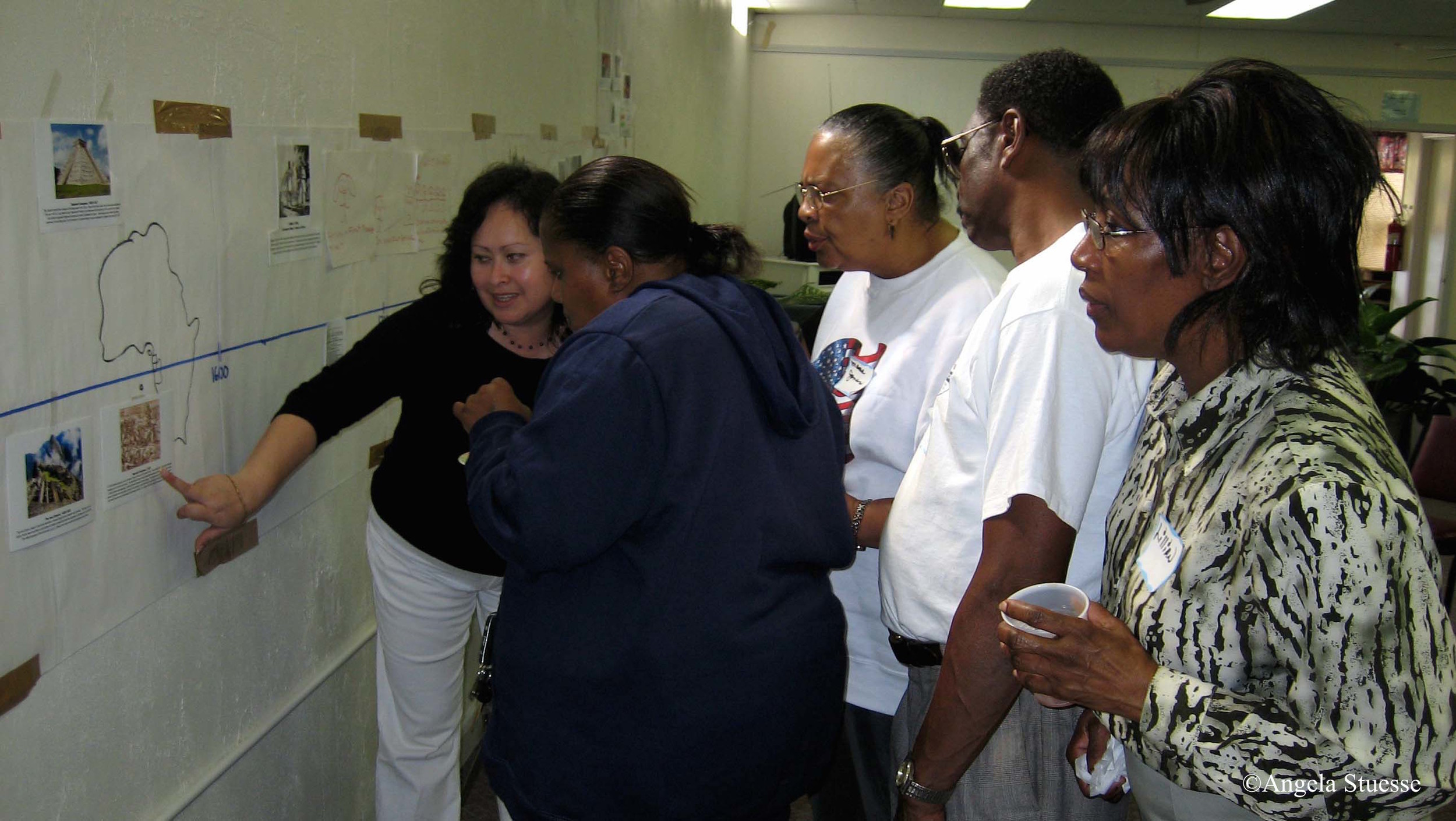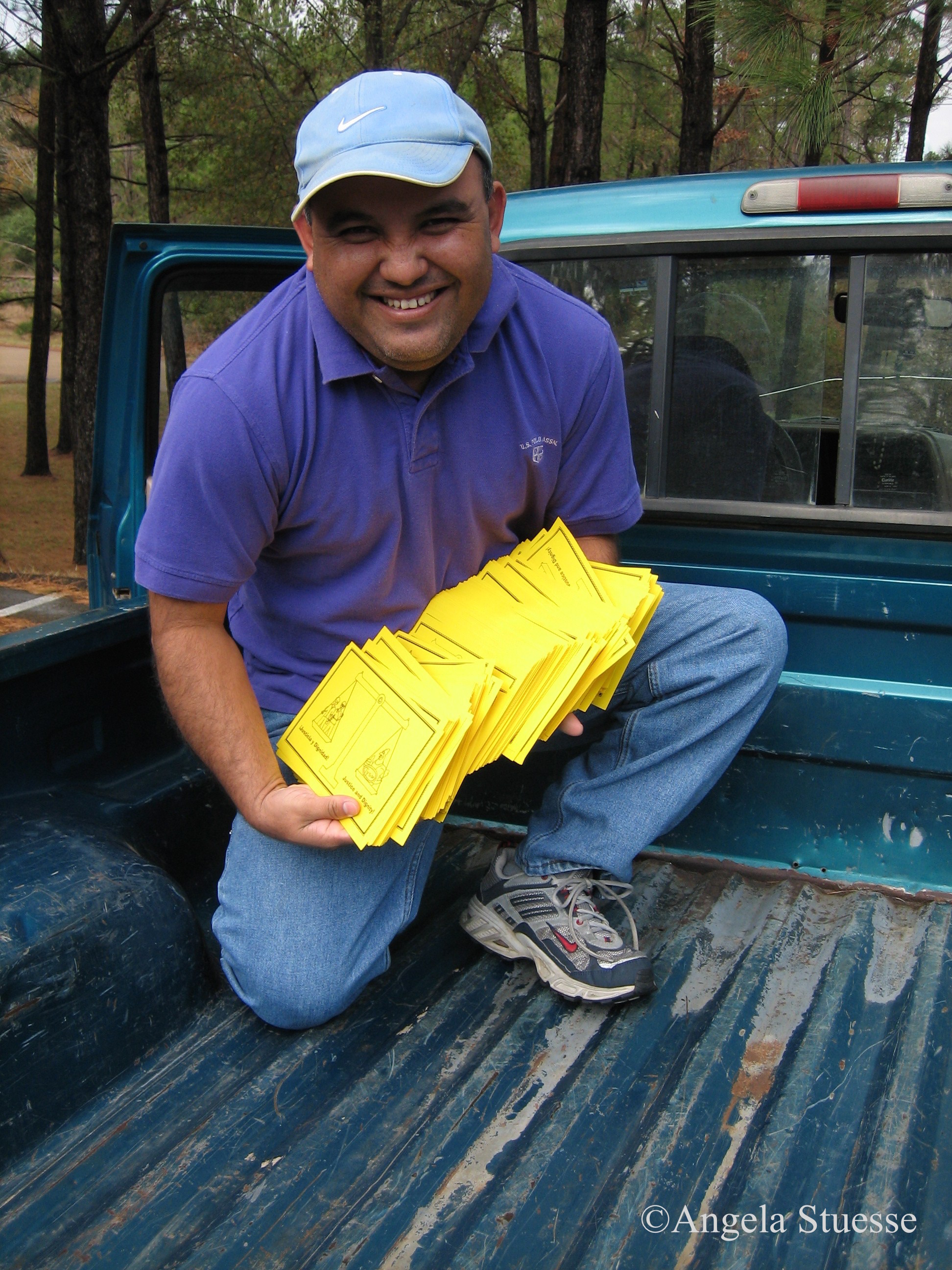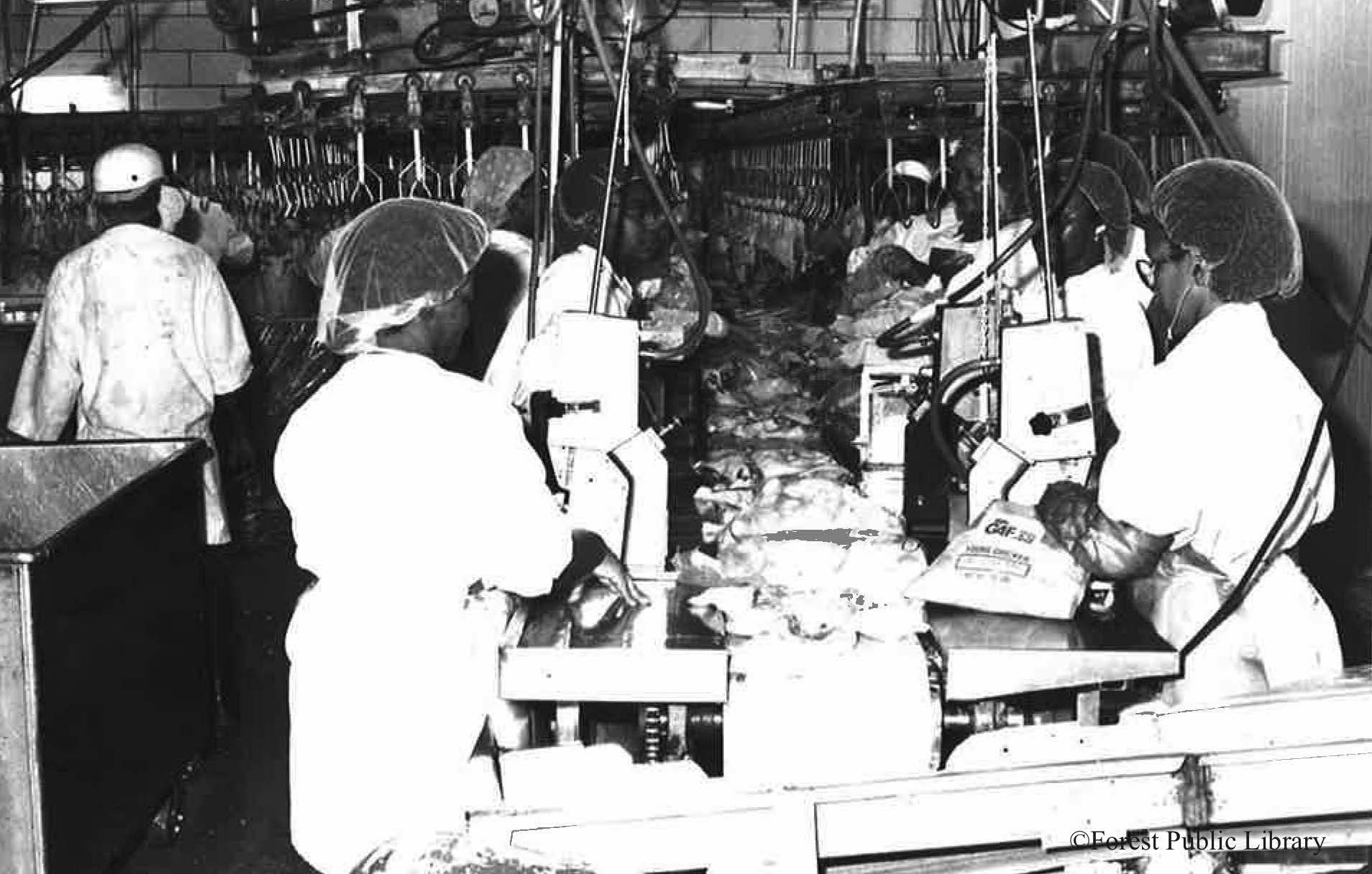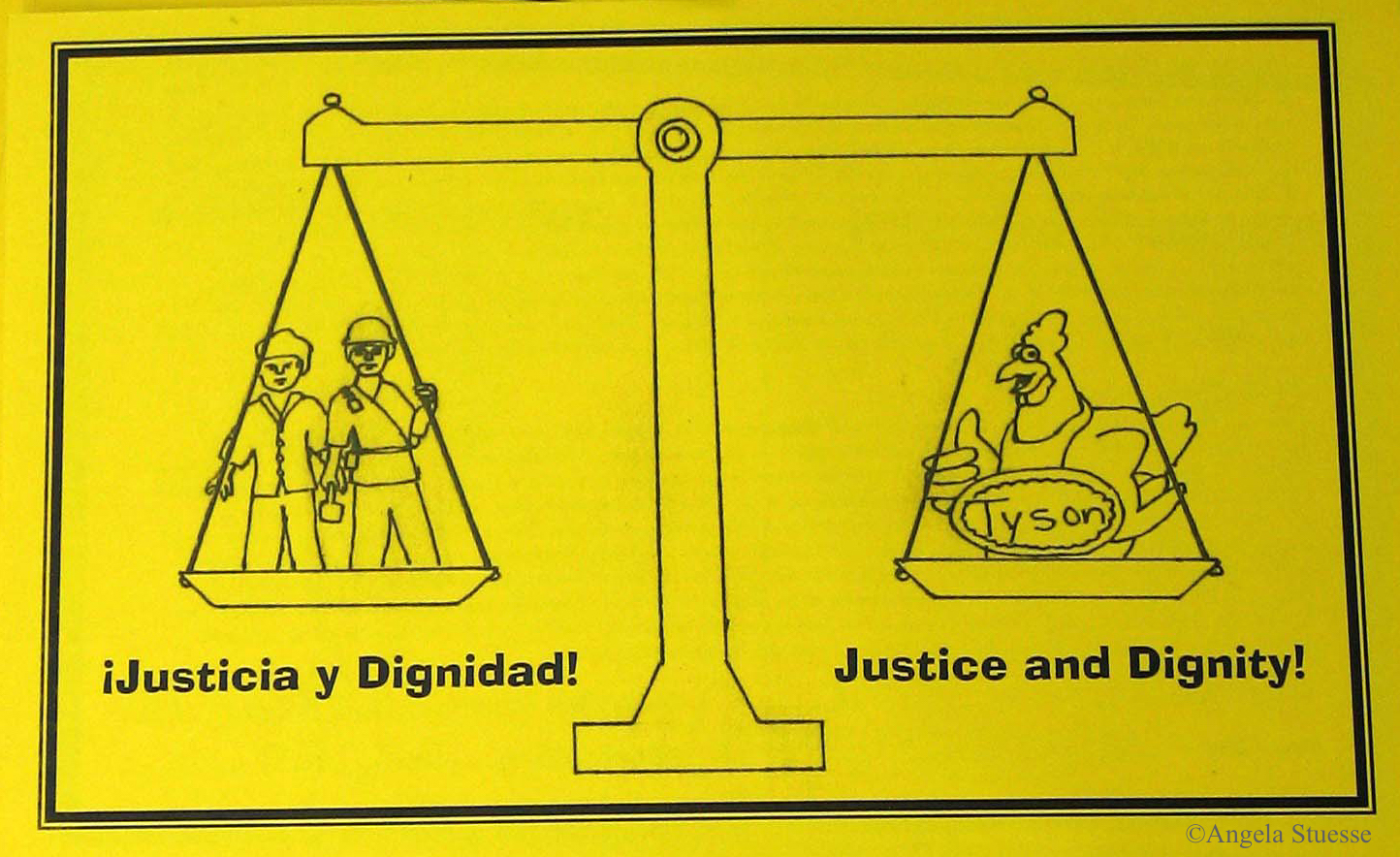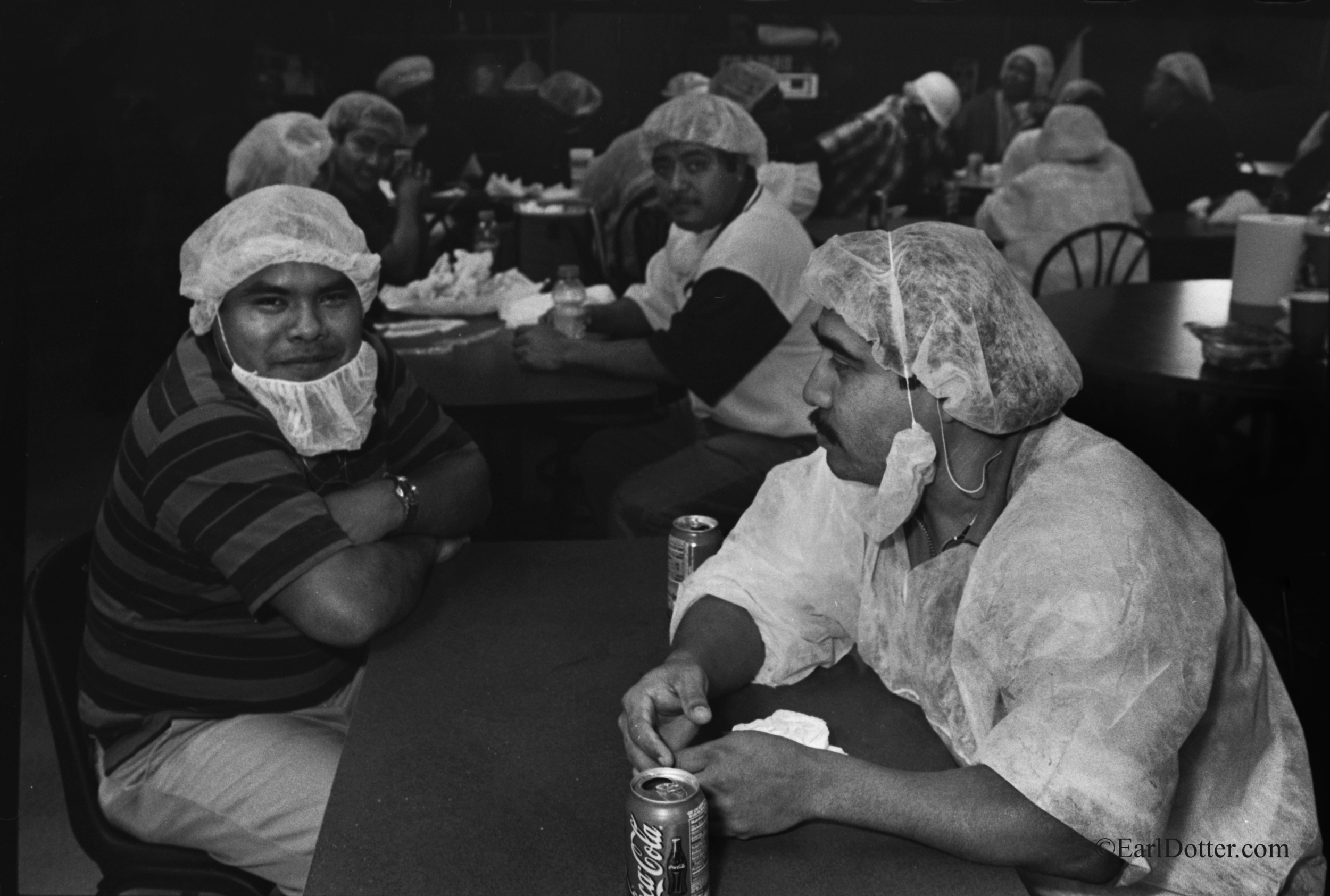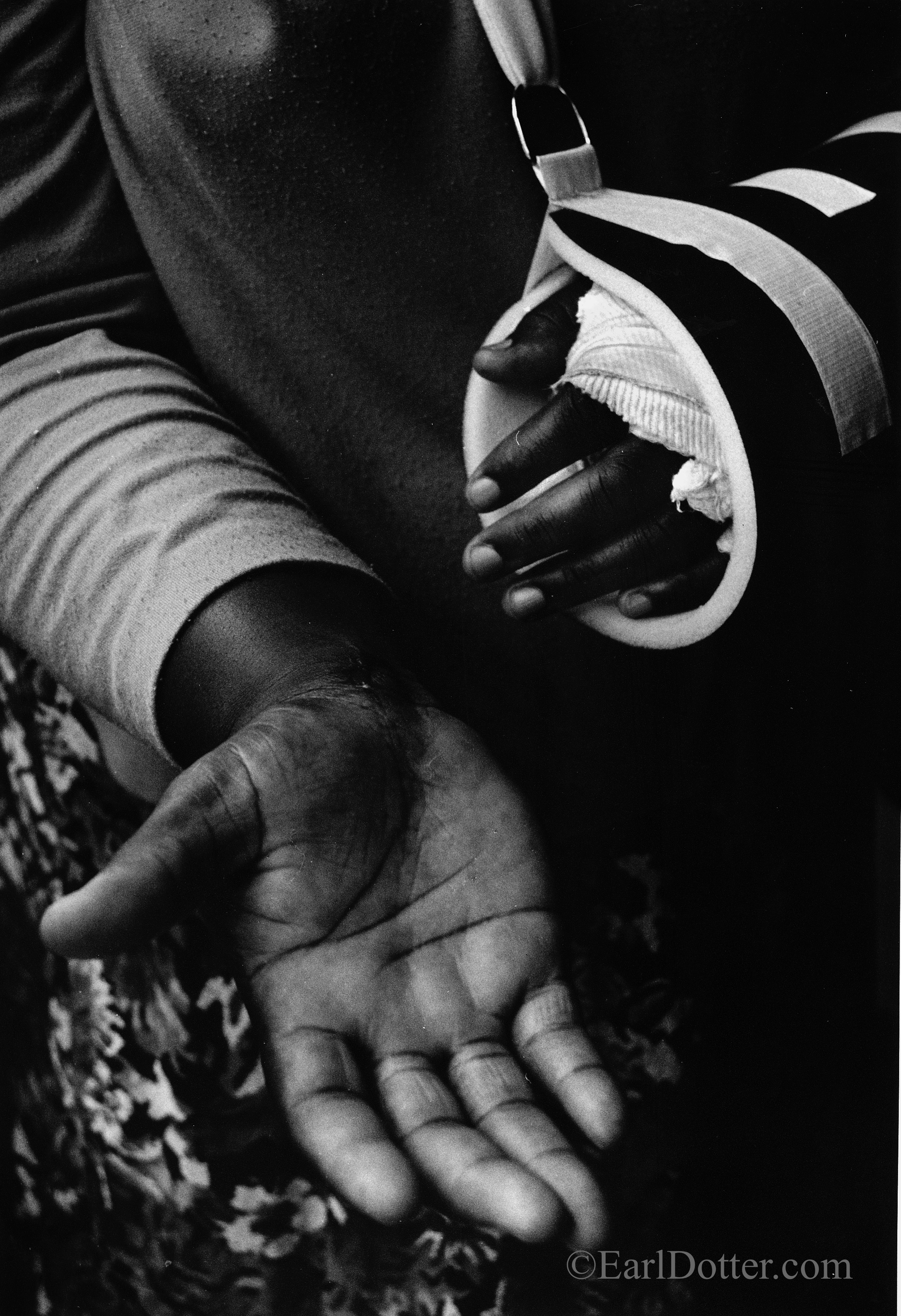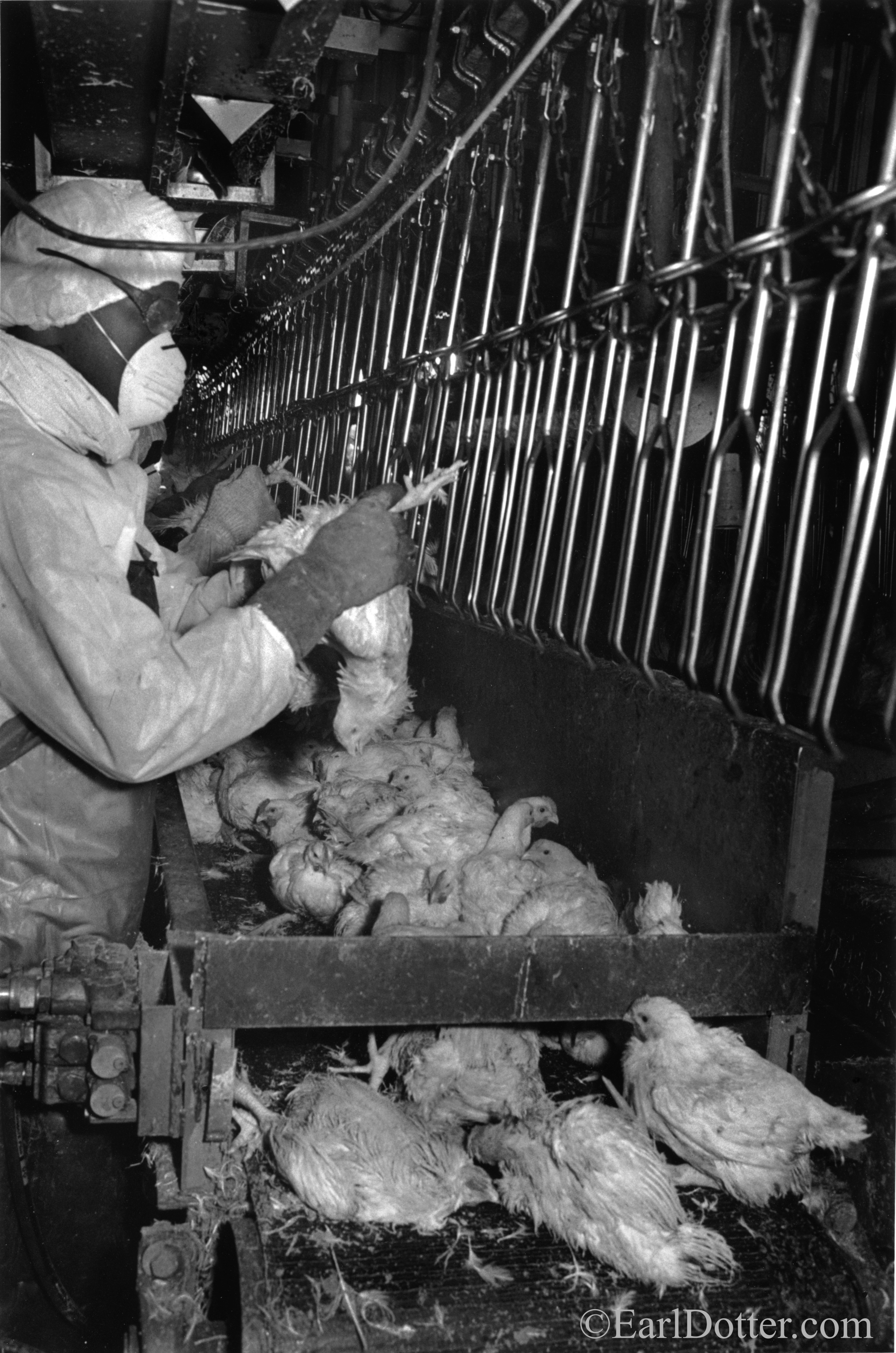GLOBALIZATION OF THE U.S. SOUTH
Since 2002 I have been studying the globalization of the U.S. South. Conducted alongside a worker center in a poultry processing area of Mississippi, much of this research has considered how the recent influx of Latin American migrants is impacting regional identities, racial hierarchies, industrial relations, and labor organizing. In addition to producing my first book, Scratching Out a Living: Latinos, Race, and Work in the Deep South, this work has resulted in several articles and book chapters, as well as a popular education curriculum, Solidarity/Solidaridad: Building Cross-Cultural Understanding for Poultry Worker Justice.
Scholarly Products
Stuesse, Angela. 2023. Afterword to Special Issue, Working toward Justice on Difficult Ground. Tennessee Law Review 90(3): 667-670.
Stuesse, Angela. 2021. The Criminalization of Undocumented Work, Pandemic Suffering, and the Meat We Eat. Human Organization 80(2):102-104.
Stuesse, Angela. 2021. Killing the Workers that Feed Us. Anthropology News. January 8.
Stuesse, Angela. 2020. Coronavirus can afflict the powerful. Yet food workers remain the most vulnerable. Washington Post. October 4.
Stuesse, Angela. 2020. Muertes que duelen, vidas que importan. La Jornada del Campo. June 20. (also published as Fallece migrante que luchó por derechos laborales in Salud Primero, June 8.)
Stuesse, Angela. 2020. He worked for better conditions at his chicken plant. Then the coronavirus took his life. USA Today. May 12 (originally published in the Jackson Clarion-Ledger, May 11.)
Stuesse, Angela. 2019. The connection between the poultry on your holiday table and Trump’s deportation machine. The Washington Post. November 26.
Stuesse, Angela. 2019. The poultry industry recruited them. Now ICE raids are devastating their communities. The Washington Post. August 9.
Stuesse, Angela. 2018. When They’re Done with You: Legal Violence and Structural Vulnerability among Injured Immigrant Poultry Workers. Anthropology of Work Review 39(2):79-93.
Saxton, Dvera and Angela Stuesse. 2018. Workers’ Decompensation: Engaged Research with Injured Im/migrant Workers. Anthropology of Work Review 39(2):65-78.
Gray, Maggie, Sarah Horton, Vanesa Ribas, and Angela Stuesse. 2017. Immigrant Labor, Food Politics: A Dialogue between the Authors of Four Recent Books about the Food System. Gastronomica: The Journal of Critical Food Studies 17(1):1-14.
Stuesse, Angela. 2017. The Town Where the Asphalt Ends. University of California Press Blog. November 28.
Stuesse, Angela. 2016. Scratching Out a Living: Latinos, Race, and Work in the Deep South. Berkeley: University of California Press.
Horton, Sarah and Angela Stuesse. 2016. Criminalizing Immigrants Hurts All Workers as IRCA Turns 30. Daily Kos. November 3.
Stuesse, Angela. 2016. "Why We Wear Diapers at Work." The Huffpost Blog, Huffington Post. May 20.
Stuesse, Angela. 2015. "The Truth About Your Holiday Turkey." Colorlines. December 23.
Stuesse, Angela and L.E. Helton. 2013. “Low-wage Legacies, Race, and the Golden Chicken in Mississippi: Where Contemporary Immigration Meets African American Labor History.” Southern Spaces. http://southernspaces.org/2013/low-wage-legacies-race-and-golden-chicken-mississippi-where-contemporary-immigration-meets.
Stuesse, Angela C. 2010. “What’s ‘Justice and Dignity’ Got to Do with It? Migrant Vulnerability, Corporate Complicity, and the State.” Human Organization 69(1):19-30.
Stuesse, Angela C. 2010. “Prejudice, Discrimination, Exclusion in Mississippi—Sound Familiar?” Race-Talk. A Kirwan Institute Project. April 7. (cross-posted on AlterNet at http://blogs.alternet.org/speakeasy/2010/04/07/mississippi-prom/ and designated “Best Column” by The Week at http://theweek.com/article/index/201629/mississippis-prom-outrage-an-echo-of-desegregation).
Stuesse, Angela C. 2009. “Race, Migration, and Labor Control: Neoliberal Challenges to Organizing Mississippi's Poultry Workers.” In Latino Immigrants and the Transformation of the U.S. South. M. Odem and E. Lacy, eds. Pp. 91-111. Athens: University of Georgia Press.
